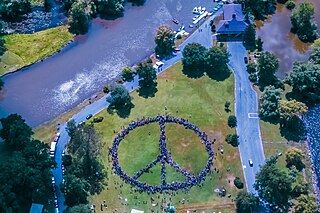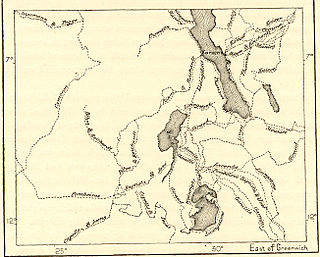
Peacebuilding is an activity that aims to resolve injustice in nonviolent ways and to transform the cultural & structural conditions that generate deadly or destructive conflict. It revolves around developing constructive personal, group, and political relationships across ethnic, religious, class, national, and racial boundaries. This process includes violence prevention; conflict management, resolution, or transformation; and post-conflict reconciliation or trauma healing, i.e., before, during, and after any given case of violence.

The United Nations Peacebuilding Commission (PBC) is a United Nations intergovernmental advisory body of both the General Assembly and the Security Council that supports peace efforts in conflict affected countries. A key addition to the capacity of the international community in the broad peace agenda, it was established in 2005 with the passage of both A/RES/60/180 and S/RES/1645

The United Nations Integrated Office in Burundi (BINUB) was established by the United Nations Security Council to support the government of Burundi in its efforts towards long-term peace and stability and to replace the work of United Nations Operation in Burundi (ONUB). Its mandate was scheduled to begin on 1 January 2007 for an initial 12 months, and its creation and mission was as a result of recommendations in a report by the Secretary-General.

United Nations Security Council Resolution 1917, adopted unanimously on March 22, 2010, after recalling its previous resolutions on Afghanistan, in particular resolutions 1868 (2009), 1662 (2006) and 1659 (2006), the Council extended the mandate of the United Nations Assistance Mission in Afghanistan (UNAMA) until March 23, 2011 and realigned its mandate to assist with government-led recovery efforts.

United Nations Security Council resolution 1049, adopted unanimously on 5 March 1996, after reaffirming Resolution 1040 (1996) concerning Burundi, the Council called for an end to violence in the country and discussed preparations for a conference on security in the African Great Lakes region.

United Nations Security Council resolution 1234, adopted unanimously on 9 April 1999, after expressing concern at the situation in the Democratic Republic of the Congo, the Council demanded an immediate halt to hostilities in the region, a withdrawal of foreign forces and the re-establishment of the government's authority.

United Nations Security Council Resolution 1938, adopted unanimously on September 15, 2010, after recalling previous resolutions on the situation in Liberia, including resolutions 1509 (2003), 1626 (2005), 1836 (2005) and 1885 (2009), the Council extended the mandate of the United Nations Mission in Liberia (UNMIL) for a further twelve months until September 30, 2011 and required it to provide electoral assistance.

United Nations Security Council Resolution 1941, adopted unanimously on September 29, 2010, after recalling all previous resolutions on the situation in Sierra Leone, particularly Resolution 1886 (2009), the Council extended the mandate of the United Nations Integrated Peacebuilding Office in Sierra Leone (UNIPSIL) until September 15, 2011.

United Nations Security Council Resolution 1545, adopted unanimously on 21 May 2004, after recalling all resolutions on the situation in Burundi, particularly Resolution 1375 (2001), the Council established the United Nations Operation in Burundi (ONUB) to bring about peace and national reconciliation in the country.

United Nations Security Council Resolution 1949, adopted unanimously on November 23, 2010, after recalling previous resolutions on the situation in Guinea-Bissau, particularly Resolution 1876 (2009), the Council extended the mandate of the United Nations Integrated Peacebuilding Office in Guinea-Bissau (UNIOGBIS) for a further period of one year until December 31, 2011.

The United Nations Office in Burundi (BNUB) was established by the United Nations Security Council in December 2010 as a scaled-down operation to replace the United Nations Integrated Office in Burundi from 1 January 2011.

United Nations Security Council Resolution 1964, adopted unanimously on December 22, 2010, after recalling previous resolutions on the situation in Somalia, the Council authorised the continuation of the mandate of the African Union Mission to Somalia (AMISOM) until September 30, 2011, and increased its size from 8,000 to 12,000 personnel.

United Nations Security Council resolution 1602, adopted unanimously on 31 May 2005, after recalling resolutions 1545 (2004), 1565 (2004), 1577 (2004) and 1596 (2005) on the situation in Burundi, the Council extended the mandate of the United Nations Operation in Burundi (ONUB) for a period of six months until 1 December 2005.

United Nations Security Council Resolution 1974, adopted unanimously on March 22, 2011, after recalling previous resolutions on Afghanistan, in particular 1917 (2010), the Council extended the mandate of the United Nations Assistance Mission in Afghanistan (UNAMA) for a period of one year until March 23, 2012.

United Nations Security Council Resolution 1650, adopted unanimously on 21 December 2005, after recalling Resolution 1545 (2004) regarding the situation in Burundi, the Council extended the mandate of the United Nations Operation in Burundi (ONUB) until 1 July 2006.

United Nations Security Council Resolution 1653, adopted unanimously on January 27, 2006, after recalling previous resolutions concerning the situations in the African Great Lakes region, Democratic Republic of the Congo and Burundi, particularly resolutions 1625 (2005), 1631 (2005), 1649 (2005) and 1650 (2005), the Council addressed the stability of the Great Lakes region in Africa.

United Nations Security Council Resolution 1719, adopted unanimously on October 25, 2006, after recalling resolutions on the situation in Burundi, including resolutions 1545 (2004), 1577 (2004), 1602 (2005), 1606 (2005), 1650 (2005) and 1692 (2006), the Council established the United Nations Integrated Office in Burundi (BINUB) for an initial period of one year to assist in the country's long-term peace and stability.

United Nations Security Council Resolution 1734, adopted unanimously on December 22, 2006, after recalling all previous resolutions on the situation in Sierra Leone, including resolutions 1620 (2005) and 1688 (2006), the Council renewed the mandate of the United Nations Integrated Office in Sierra Leone (UNIOSIL) until December 31, 2007.
United Nations Security Council Resolution 1829 was unanimously adopted on 4 August 2008.

The Office of the Special Representative of the Secretary-General on Sexual Violence in Conflict (OSRSG-SVC), is an office of the United Nations Secretariat tasked with serving the United Nations' spokesperson and political advocate on conflict-related sexual violence, the Special Representative of the Secretary-General on Sexual Violence in Conflict (SRSG-SVC). The Special Representative holds the rank of Under-Secretary-General of the United Nations and chairs the UN Action Against Sexual Violence in Conflict. The mandate of the SRSG-SVC was established by Security Council Resolution 1888, introduced by Hillary Clinton, and the first Special Representative, Margot Wallström, took office in 2010. The current Special Representative is Pramila Patten of Mauritius, who was appointed by United Nations Secretary General António Guterres in April 2017. The work of the SRSG-SVC is supported by the United Nations Team of Experts on the Rule of Law/Sexual Violence in Conflict, co-led by the Department of Peacekeeping Operations (DPKO), Office of the High Commissioner for Human Rights (OHCHR) and the United Nations Development Programme (UNDP), also established under Security Council Resolution 1888.
















